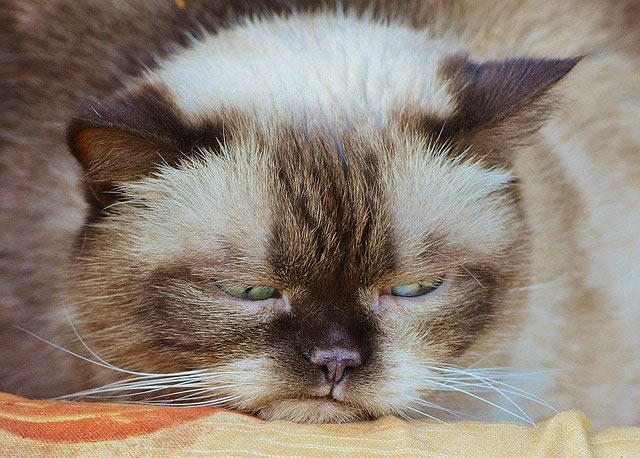先日から「Why do we think cats are unfriendly? -「猫を不愛想と感じる理由」を読んでいます。

・「猫を不愛想と感じる理由」(1)
・「猫を不愛想と感じる理由」(2)
・「猫を不愛想と感じる理由」(3)
Given that cats are such an outlier among the animals we live with, it’s no wonder that we might have been getting their signals wrong.
猫が人間と暮らす動物の中でも異質な存在であるなら、猫の合図を間違って受け取っていても不思議ではない。
outlier「異常値、外れ値」。
“Because they are so self-determined and can take care of themselves, cats are becoming more and more popular,” Hiestand says.
「猫は自己決定能力が高く、自分の事は自分でするので、ますます人気が高まっています」とハイスタンド氏。
“But whether the lifestyle suits them is another question.
「ですが、その暮らし方が合っているかどうかは別問題です。
Humans are expecting cats to be like us and like dogs.
人間は、猫が自分たちや犬のようになることを期待しています。
And they aren’t.”
でも猫はそうはなりません。」
Research into cats’ emotions and sociability has long lagged behind that on dogs, but in recent times it has gathered pace.
猫の感情や社会性に関する研究は、犬に比べて長いこと遅れを取っていたが、近ごろ勢いを増している。
lag behind~「立ち遅れる、遅れを取る、落後する」。
gather pace「勢い・速度を増す」。
Much of it is in its early stages, but already research has shown that cats’ sociability towards humans is quite a complicated spectrum.
研究の多くはまだ初期段階だが、すでに猫の人間に対する社会性については、非常に複雑な領域であることが分かった。
“It is highly variable, driven by genetics, and the sociability part can come from what they experience in the first six or eight weeks.
「それは遺伝的要素で大きく変化しやすい領域で、猫の社交性は、生後6~8週間で経験したことが影響します。
If they have positive experiences in the early part of their lives, they’re probably going to like humans and want to hang out with us.”
初期段階でポジティブな経験をすれば恐らく人間が好きになり、一緒にいたいと思ってくれるでしょう」。
なるほど~、それは何か分かる気がします。
猫の気質は本当に個体差があって、メス2匹、オス2匹を飼った経験ではメスよりオスの方がフレンドリーというか、甘えたがりかなと思います。
心を開かないという事では決して無いんですが、メスは子育てを担うので、子供の安全を守る意味で、オスより用心深いのかな?と個人的には思っています。
オスはドベ~っと心から寛ぎますが(笑)、メスはどこか引き締まっているというか、緩み切らない感じで、そこに独特の美しさを感じます。
理由は単純明快!「少ないコストでしっかり楽しく学べるから」。
私自身の経験(高機能でビックリ)をびっしり書いていますので、良かったら読んでみてください。
下のバナーからどうぞ!






